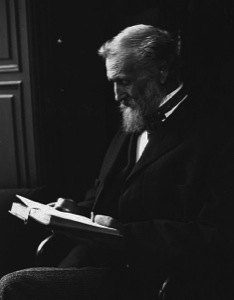
Two of the most significant and societally challenging causes of the 21st Century are the environmental and LGBT civil rights movements. Rather than unfolding in isolation from each other – and in spite of their first appearances as completely unrelated – the two movements frequently overlap; share resources and leaders; and even stand in sharp contrast to each other.
The environmental movement as we understand it today stems from a period well in the past, when preservationists (those who advocate preservation for its own sake), such as John Muir, and conservationists (proponents of the management of natural resources for human use), such as Gifford Pinchot, were establishing the groundwork for a movement we recognize today as the modern environmental movement.
Although Muir and Pinchot weren’t known to be gay, they were roughly contemporaries of two other men whose widely hypothesized gayness has a century or more of documentation. Walt Whitman and Henry David Thoreau brought the sensitivity of their gentle natures to what has become a “genetic” part of the legacy of American letters: Whitman’s poetry of sexual spirituality was entwined with the natural world around him as he beseeched others to return to the wilderness to find their very souls. At the same time, Thoreau’s apparently unconsummated homosexuality may have been (at least part of) the impetus for his literary call of the wild known as Walden. At Walden Pond, Thoreau planted the deepest seeds of harkening back to a simpler life – life in a cabin in the woods. Those seeds did then and continue now to remind Americans that in order to hideaway and recharge amid the trees, near the pond, there has to be a woods in which to retreat.
But it wasn’t until Rachel Carson’s seminal 1962 book, Silent Spring, which detailed the effect chemicals and pesticides were having on the environment, that modern activists of various perspectives, races, incomes, genders and even sexual orientations come together to stop, or at least slow, industrialized civilizations’ creep toward a self-administered, mass poisoning.
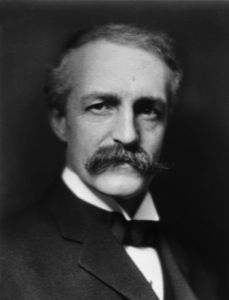
Meanwhile, in the early to mid-1960s, the nascent LGBT–rights movement lacked a unifying “aha” moment even after some important, but pornography-specific legal victories (e.g., Stanley v. Georgia, which established the right to own pornography; Miller v. California, which permitted the sale and transfer of pornography through the mail).
Without its own seminal event correlating to the environmental movement’s ignition courtesy of Silent Spring, it seemed the 1960s would basically go on with only two major progressive causes: the peace and environmental movements. In truth, it was a lot harder to argue for gay justice than it was to argue for environmental justice. No one labeled trees as “perverts.”
But unlike the environmental movement, the LGBT civil rights movement started with ferocity when the gay community, a handful of progressives, responded with a vehement protest to yet another violent police raid at the Black Cat Tavern on New Year’s Eve, 1967 in the Los Angeles neighborhood of Silver Lake. Then, two years later, it came: the gay–rights (now LGBT rights) movement’s seminal moment in the form of the infamous raid on New York City’s Stonewall Inn in the early morning hours of June 28, 1969. Since Stonewall, our community’s fight for equality has crossed paths with many other movements, from feminism in an almost exclusively positive way; to Christian fundamentalism – almost never in a positive way. But, according to some, it’s the environmental movement that cuts to the most basic, essential aspects of human rights in a way that is as central to being human as is sexual orientation.
If you ask Brandon Tate-McWilliams, director of development at the Environmental Health Coalition (EHC), he will tell you why this symbiotic relationship flourishes.
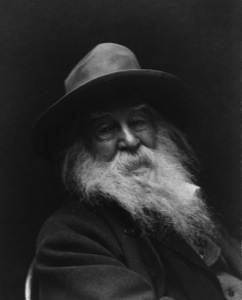
“(EHC) serves a constituency of urban communities of color where residents are denied the basic human right to live and work in a safe, healthy environment. In many ways, the LGBT community is similarly denied basic human rights and access to the essential elements of a healthy community. Both communities need improved access to healthcare, increased civic participation, health-protective public-policies that address the concerns of our communities, and above all fair treatment and equal representation. At EHC, empowering people, organizing communities and achieving justice are the guiding principles of our work.”
Georgette Gomez, a self-described “queer brown woman” and EHC’s associate director agrees but adds, “There’s another piece to this: immigration injustice. And humans are at the center of all these injustices, whether it be health, whether it be sexuality, whether it be immigration status.”
Both Tate-McWilliams and Gomez have crossed back and forth between the environmental and LGBT–equality movements during their lives and their careers. Both continue to be active in forwarding the two causes.
“I try to intersect all of that with what I do,” said Gomez. “I work mostly south of the 94 (outside the Hillcrest) area and there are LGBT folks there, too. And we’re all working to bring justice … The better we communicate with one another, the better we intersect our issues, the stronger we can be and the stronger we can move together toward our goals.”
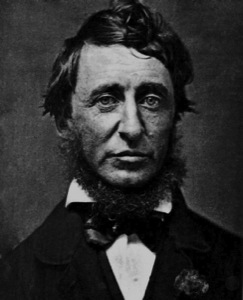
But movements, no matter how noble or necessary to the very survival of the human race, have their detractors. Equality and ecology are two issues that are far from immune from callous invectives and propaganda that seek to undermine their flourishing. But there was a time, not so long ago, when a person had to argue that he or she was born gay, lesbian, bisexual or transgender in order to make claims to all the right, benefits and privileges non-LGBTs are entitled to as a matter of course. Technically, the biology jury is still out on the origins of homosexuality. However, there is much persuasive physical evidence that it is an innate orientation. In fact, the vast majority of psychologists are convinced that it is. Yet despite the consensus and evidence to the contrary, society’s homophobic leaders and their followers cling to the idea that “gay” is ungodly.
Similarly, after the Japanese people suffered a deadly $25 billion tsunami and multiple nuclear meltdowns, there were so-called religious people who said God is punishing non-Christians. Likewise, some conservative politicians and energy executives deny that there is much danger in the use of fission-based nuclear energy.
Denial of essential facts about the environment further echoes that of sexual orientation in the case climate change. Take for example, Texas’ $5.6 billion drought, which has claimed more than two billion head of cattle. Anti-environmental zealots cry “conspiracy!” when the community of climatology scientists is nearly unanimous in saying that humanity is affecting climate change (and could slow it down with a more environmentally friendly energy policy).
But not all LGBT–rights activists agree that the two movements are similar or even complementary. Dan Choi, a man who’s name is almost synonymous with the overturning of Don’t Ask, Don’t Tell through confrontation and aggressive activism, is dubious about the notion that environmentalism and the fight for equality are connected.
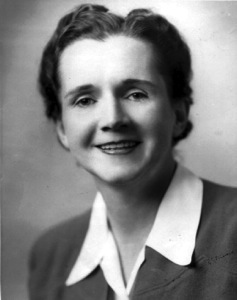
“Environmentalists as an activist movement have long been familiar with direct action, but have lacked political audacity,” he told San Diego LGBT Weekly. “And, this problem is common in many movements, including the gay civil rights movement.”
According to Choi, the LGBT community would likely attain all of its civil rights goals sooner, and would have won more of them along the way, if it had had the preponderance of resources the green movement enjoys.
“We have never had the benefit of environmentalism’s numbers, or the ease of discussing our issues compared to environmentalists,” he said. “It has been more difficult for us to mass large numbers of protestors willing to suffer jail time for the cause, but our targets have become more refined, at least in the grassroots arena of gay civil rights.”
Choi cites an environment-versus-energy issue that’s currently winding its way through the court of public opinion and the American political landscape as an example of what he sees as the green movement’s squandering of its vast resources.
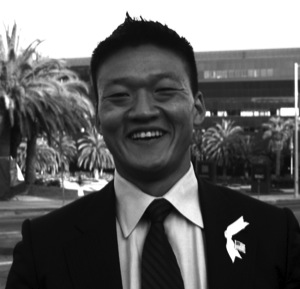
“LGBTs have grown more willing to pressure our political friends even with small numbers,” Choi said. “This is a lesson that the environmentalists could better heed. It was an early lesson of the Keystone XL (tar-sands oil pipeline between the Gulf Coast and Canada) struggle where activists took the fight directly to President Obama. Initially it seemed successful as President Obama would delay the pipeline permit. But the mad dash to quickly heap unbridled praise on a political friend was a signal that the environmental activists still had a thin skin in many regards, afraid of the political repercussions of drawing a hard line. In the end they did not achieve what they set out to accomplish, despite 1,253 arrests, major celebrity support, tens of thousands of emails, letters and protestors massing for inspiring events. The missing element was the hardliner approach that all progressive movements need to develop as we move forward.”
Forward motion in both movements continues, albeit not at an ideal pace. But, despite periodic setbacks, such as school boards wanting to challenge the teaching of climate change and the rights of consenting adults to marry whom they love, the tectonic plates of public opinion have inarguably been shifted. As evidenced by Tate-McWilliams’ and Gomez’ crossover activism, and even by Choi’s frustration with the environmental movement’s tactical and strategic philosophies, there exists a seemingly natural affinity between LGBTs and environmentalists.
A Harris Interactive poll bore out that 55 percent of adult LGBTs espouse environment-friendly values and rate those values as greatly important, as compared to 33 percent of the heterosexual population. It would appear LGBTs and environmentalists are having a ménage a trois with the planet.
As Whitman said in his poem, Leaves of Grass, “Far-swooping elbowed earth! Rich apple-blossomed earth! Smile, for your lover comes!”











